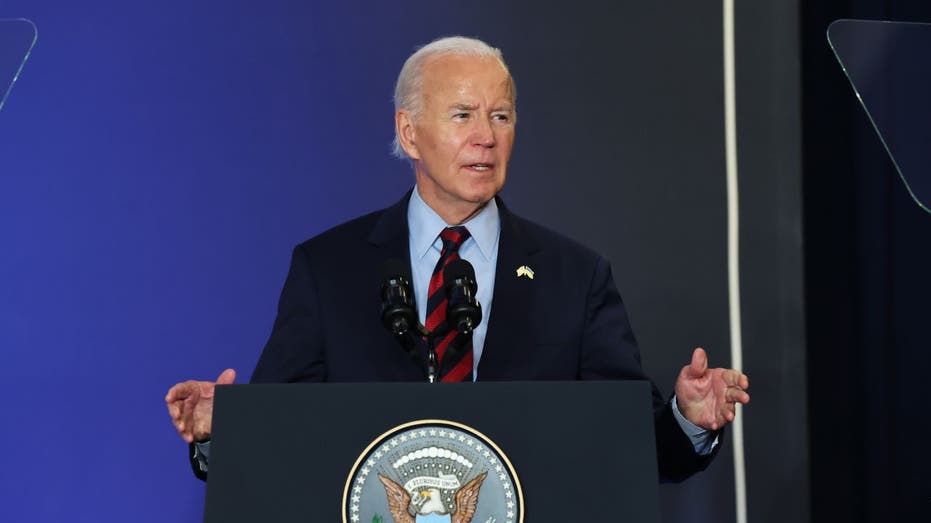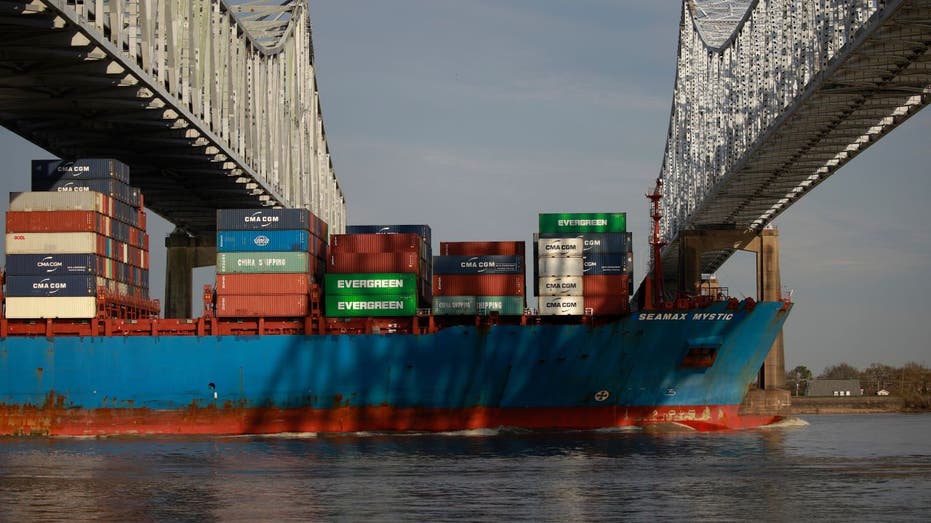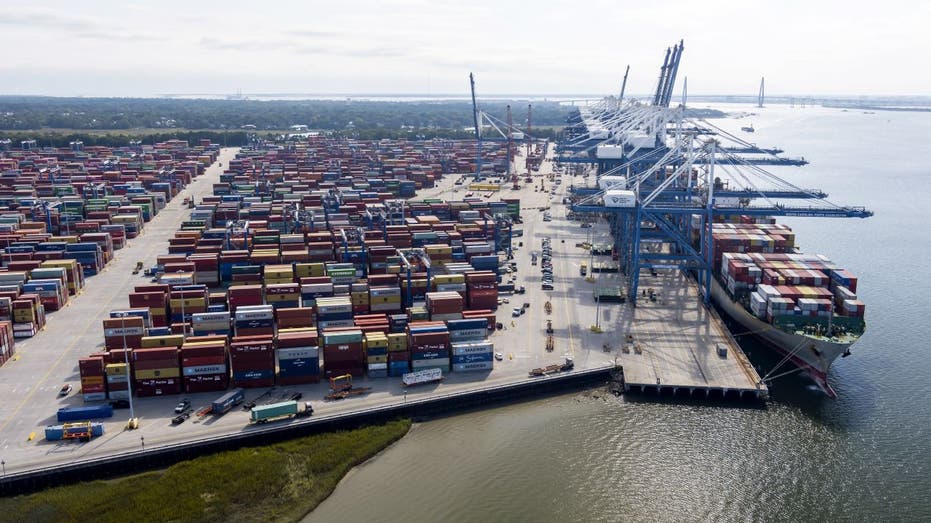President Biden could use the Taft-Hartley Act to intervene in port strike: how does it work?
The White House has said President Biden doesn't plan to intervene in a potential dockworkers strike
Shippers scramble as workers threaten East Coast port strike
FOX Business Lydia Hu has the details from Bayonne, N.J., on Varney & Co.
A dockworkers strike at seaports on the East and Gulf Coasts began on Tuesday and while federal law gives the president the authority to intervene in such a labor dispute when it creates a national emergency, President Biden has rejected calls from business groups to use it.
The port strike began after the expiration of the International Longshoremen's Association (ILA) contract with the U.S. Maritime Alliance (USMX) at midnight Monday. The strike has disrupted operations at 36 East and Gulf Coast ports that collectively handle about half of the country's seaborne imports – delaying shipments of a variety of goods that cost the U.S. economy up to $4.5 billion a day, according to an analysis by J.P. Morgan.
President Biden has signaled that he doesn't plan to intervene in the strike, and the White House has called on both sides to continue negotiations and noted the administration is assessing ways to respond to supply chain disruptions.
Though he isn't planning to intervene, Biden has been urged by several leading business groups to use his legal authority to do so. A law known as the Taft-Hartley Act would allow him to intervene in the labor dispute if he chooses to do so.

President Biden has said he doesn't plan to use his authority to intervene in a potential dockworkers strike. (Photo by Michael M. Santiago/Getty Images / Getty Images)
BUSINESS GROUPS CALL ON BIDEN TO INTERVENE IN PORT STRIKE
How does Taft-Hartley's dispute intervention work?
Enacted in 1947 as an update to the National Labor Relations Act, the Taft-Hartley Act contained a variety of updates and reforms to labor laws and dispute mechanisms – including a new provision for settling labor disputes that create a national emergency.
According to the nonpartisan Congressional Research Service (CRS), the Taft-Hartley Act authorizes the president to intervene in a labor dispute after making a determination that there is a "threatened or actual strike or lockout;" the dispute affects all or a substantial part of an industry engaged in "trade, commerce, transportation, transmission, or communication among the several States or with foreign nations;" and the strike or lockout, if it occurs or continues, would "imperil the national health or safety."
WHAT PRODUCTS WOULD BE DISRUPTED BY A PORT STRIKE?

36 seaports on the East and Gulf Coasts could be affected by a dockworkers strike. (Photographer: Luke Sharrett/Bloomberg via Getty Images / Getty Images)
After making that determination, the president could appoint a board of inquiry (BOI) to examine the labor dispute and issue a written report. Once that report is received by the president, he can instruct the attorney general to make a legal filing in a federal district court that seeks to enjoin the strike or lockout.
When a federal court grants the injunction requested by the attorney general and Justice Department on the president's behalf, the injunction triggers an 80-day "cooling off" period in which employees return to work while the two sides resume negotiations to "make every effort to adjust and settle their differences."
If there isn't an agreement 60 days after the injunction, the BOI reports the employer's last offer and the two sides' positions to the president. The National Labor Relations Board would then conduct a secret ballot over 15 days to determine whether employees want to accept the offer, with the results reported to the DOJ within five days of the balloting. If employees accept the offer, the dispute is resolved, and if they reject the offer, the two sides can continue negotiations.

The looming dockworkers strike could disrupt shipments of a variety of goods that flow through East and Gulf Coast ports. (Photo by JIM WATSON/AFP via Getty Images / Getty Images)
The CRS noted that as of Aug. 2023, presidents have used Taft-Hartley to intervene in labor disputes on 37 occasions since the law's enactment. Incidentally, the last time Taft-Hartley's intervention mechanism was invoked was in response to a West Coast port dispute.
In Oct. 2002, President George W. Bush appointed a BOI amid a labor dispute between the Pacific Maritime Association (PMA) and the International Longshore and Warehouse Union (ILWU) during a lockout amid contract negotiations. After the BOI issued its report in Nov. 2022, the two sides reached a tentative agreement.

A J.P. Morgan analysis found the cost of a dockworkers strike at seaports on the East and Gulf Coasts could cost the U.S. economy $5 billion a day. (Photographer: Sam Wolfe/Bloomberg via Getty Images / Getty Images)
What has the White House said about intervening?
Earlier this month, the White House signaled that President Biden has "never invoked Taft-Hartley to break a strike and are not considering doing so now" and that the administration supports continued negotiations between the two sides.
White House Assistant Press Secretary Robyn Patterson reiterated that view in a statement to FOX Business on Wednesday.
GET FOX BUSINESS ON THE GO BY CLICKING HERE
"Since taking office, the Biden-Harris Administration has developed a comprehensive whole-of-government approach to monitor and mitigate potential supply chain impacts, from severe weather to transport service interruptions to this spring’s Key Bridge collapse in Baltimore," Patterson said. "As part of this approach, we are monitoring and assessing potential ways to address impacts to U.S. supply chains related to operations at our ports, if necessary. That said, we continue to encourage the parties to continue negotiating towards an agreement that benefits all sides and prevents any disruption."
FOX Business' Edward Lawrence contributed to this report.




















